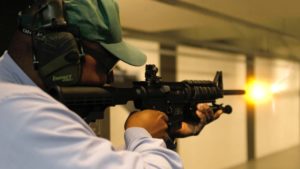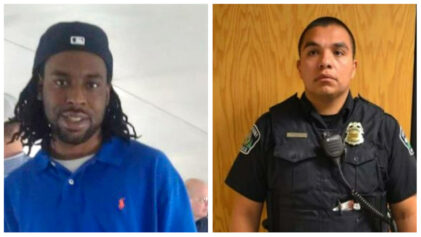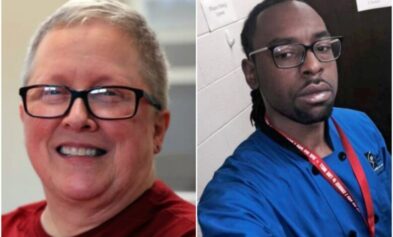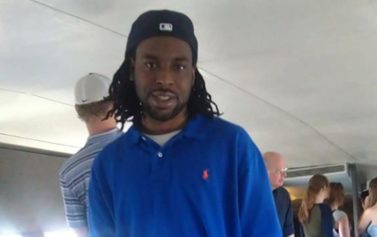
Courtesy National African American Gun Association.
Philando Castile had the legal documentation necessary to carry the firearm in his possession last Wednesday when he was gunned down by a police officer in Falcon Heights, Minnesota.
A source confirmed as much to the Minneapolis-based Star Tribune on Friday, as the Minnesota Data Practices Act prohibits public access to gun permit records.
Castile’s mother, Valerie Castile, has said that hours before the 32-year-old cafeteria manager’s deadly encounter with St. Anthony police, her son and daughter discussed the dangers of legally bearing arms as a Black person in America.
“I really don’t even want to carry my gun because I’m afraid that they’ll shoot me first and then ask questions later,” Castile told CNN her daughter said at the house earlier that day.
Philando Castile’s girlfriend Diamond Reynolds, who captured the eerie moments after the shooting on her cell phone, said Castile alerted the cop to his weapon and license to carry it but was killed anyway.
“You shot four bullets into him, sir. He was just getting his license and registration, sir,” Reynolds told the officer in the video.
The disturbing circumstances surrounding Castile’s death and that of another slain Black man, Alton Sterling in Louisiana, inspired the march in Dallas, during which Mark Hughes proudly walked with a rifle strapped over his shoulder.
Hughes, too, was exercising his state-sanctioned right when peaceful protests erupted into chaos as 12 officers and two civilians were struck by gunfire from above.
The Dallas police department quickly tweeted an image of Hughes as their primary suspect, and although he was later cleared, the damage has been lethal and lingering.
According to Hughes’ attorney S. Lee Merritt, the wrongly accused and family members recently fled for their lives after being accosted by a group of troublemakers at a local hotel.
“Cory [Hughes’ brother] went to the bathroom and noticed a group of white guys staring at him and they had pictures of his brother up on their phones,” Merritt told the New York Daily News Sunday. “He came back to me where we were eating and those same guys started taking positions around us by the exits. I got us up in a hurry and got out of there.”
These instances could produce a chilling effect in African-American gun ownership, and Black Second Amendment supporters are pushing back.
Babu Omowale, co-founder of the Huey P. Newton Gun Club based in Dallas, said Hughes’ misidentification could be attributed to the public’s irrational fear of all Black men with guns.
“I was actually at the protest. I saw the brother with his gun, and it didn’t alarm me in any type of way because to me, he’s another brother expressing his Second Amendment right,” he told the Texas Tribune. “But the police automatically view him as a suspect. But that’s how they view us — as suspects. They view us as possible criminals when we’re only applying our given rights as gun owners.”
Black codes and other racist legislation have prevented African-Americans from owning and carrying weapons since the beginning of the Union. The fear of uprisings by enslaved Blacks led many states to enact outlandish laws prohibiting them from owning any object that could be used for defense — walking canes and dogs included. Following the Civil War, Jim Crow practices requiring newly freed Blacks to present a license for their firearms, successfully excluded African-Americans from exercising the right.
Philip Smith founded the National African American Gun Association in 2015 with a goal to “have every African American introduced to firearm use for home protection, competitive shooting, and outdoor recreational activities.
“As an American citizen, I have the right to carry a gun — everyone has the right to,” Smith said in an interview with Complex magazine. “But the reality is that every time I open carry, I’m given a second look. There’s this automatic suspicion when an African American male has a gun — unless you’re a police officer — but even then there are some people who are uncomfortable with that image. It shouldn’t be that way.”
The publication reports 65 percent of NAAGA members are women and 10 percent of them are white.
A Pew Research Center survey found that since 1993, African-American support for gun control laws has fallen by 14 percent, while the proportion of Black people favoring gun rights over tightening gun control legislation has almost doubled in the same span — up to 34 percent from 18 percent.


